Barnsley F.C.
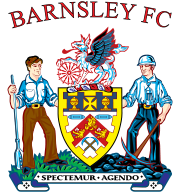 |
|||
| Full name | Barnsley Football Club | ||
|---|---|---|---|
| Nickname(s) | The Tykes, The Reds | ||
| Founded | 1887 (as Barnsley St. Peter's) | ||
| Ground | Oakwell, Barnsley (Capacity: 23,009[1]) |
||
| Owner | Patrick Cryne | ||
| Manager | Mark Robins | ||
| League | The Championship | ||
| 2009–10 | The Championship, 18th | ||
| All-time top scorer | Ernie Hine (123) | ||
|
|||
Barnsley Football Club (pronounced /'barnzli/) are a professional English football club based in the town of Barnsley, South Yorkshire. Nicknamed the Tykes, they were founded in 1887 under the name Barnsley St. Peter's. The club colours are red and white, and their home ground since 1888 has been Oakwell.
Contents |
History
Barnsley have spent more seasons in the second tier of English football than any other club in history[2] and have produced some notable talents over the years who have gone on to be successful at other clubs. One example is Tommy Taylor, who was a prolific goalscorer for Barnsley in the early 1950s and went on to win two league titles with Manchester United (as well as scoring 16 times in 19 England internationals) before losing his life in the Munich air disaster. Taylor's move to Manchester United was for a then world-record fee of £29,999.
Past times
Barnsley FC was established in 1887, playing in the Sheffield and District League from 1890 and then in the Midland League from 1895. They joined the Football League in 1898, and struggled in Division Two for the first ten years, due in part to ongoing financial difficulties. In 1910 the club reached the FA Cup final, where they lost out to Newcastle in a replay match. However, they would then reach the 1912 FA Cup Final where they would defeat West Brom 1-0 in a replay to win the trophy for the first and only time in their history.

When the league re-started after the First World War, the 1919-20 season brought some significant changes to the league. The principal difference was that the First Division would be increased from 20 teams to 22. The bottom team from the previous season was Tottenham Hotspur and they were duly relegated. The first extra place in the First Division went to Chelsea, who retained their place despite finishing 2nd bottom and therefore in the relegation places. Derby and Preston were rightly promoted from the Second Division which left one place to be filled. Having finished the previous season's Second Division in 3rd place (1914–15), Barnsley were full of expectancy at gaining First Division status for the first time, but the Football League instead chose to call a ballot of the clubs. Henry Norris, the then Arsenal Chairman, had recently moved Woolwich Arsenal north of the River Thames to Highbury, and needed First Division Football to attract fans to their new home. He was later to admit some underhand dealings, allegedly including the bribing of some member clubs to vote for Arsenal's inclusion. They duly won the vote and Barnsley were consigned to the second tier of English Football for another 8 decades.
The club did however come close to reaching the top division in the early years, such as in 1922 where they missed promotion on goal difference decided by a single goal. From the thirties up to the fifties the club found themselves sliding between the Second and Third Division, and in the sixties and seventies they hovered around the Third and Fourth Division, not able to break back into the top two levels of English football.
The eighties and early nineties saw the club get back on track, earn promotion and once again establish themselves as a strong Division Two side as they had been in their early history, eventually reaching a position to once again start challenging for a place in the top tier for the very first time.
Modern times

Over the past decade Barnsley have experienced a number of highs and lows as a football club. At the end of the 1996-97 season Barnsley reached the top tier of English football for the first time in their history. However, they were relegated the following season despite their efforts.
In the following years Barnsley were not as successful, with relegation to Division Two and administration both threatening the existence of the club. Barnsley suffered greatly due to the ITV Digital crisis, resulting in the club going into administration in 2002. A late purchase from Barnsley's then Mayor, Peter Doyle, saved the club from folding. Doyle has since left the club, leaving Gordon Shepherd and local businessman Patrick Cryne in control. There has also been a rapid turnover of managers, with no less than ten managers in the same number of years.
Barnsley had the distinction of playing in the last play-off final at Wembley before the stadium was closed for redevelopment,[3] and in 2006 won in a play-off final at the Millennium Stadium in Cardiff, where they beat Swansea City 4-3 on penalties (2-2 after extra-time) to earn promotion to the Championship. The manager at this time was Andy Ritchie, who was in his first season in charge after replacing Paul Hart.
The team struggled in their first season back in the Championship. In November 2006, with Barnsley in the relegation zone, Ritchie was sacked in favour of Simon Davey. Davey managed to steer the team away from relegation in the second half of the season, and eventually finishing in 20th. The following season, a much-changed Barnsley side managed an historic FA Cup run, beating Premier League giants Liverpool 2-1 at Anfield and defending champions Chelsea 1-0 in order to reach the semi-finals for the first time since 1912, where they narrowly lost out 1-0 to fellow Championship side Cardiff City at Wembley.
Barnsley narrowly avoided relagation from the Championship that season, and after a disappointing start to the 2009/10 season Simon Davey was sacked in favour of former Rotherham United boss Mark Robins.
Current season
Timeline
- 1892-93 - Founder member of Sheffield League, as "Barnsley St. Peter's"
- 1893-94 - Sheffield League Division Two runner-up
- 1895-96 - Joined Midland League
- 1897 - Dropped "St Peter's" to become simply Barnsley
- 1897-98 - Midland League runner-up. Also played in Yorkshire League
- 1898 - Elected to the Football League
- 1909-10 - FA Cup runner-up
- 1911-12 - FA Cup Winners
- 1921-22 - Missed promotion on goal average
- 1932 - Relegated to Division Three North
- 1933-34 - Football League Division Three North Champions; promoted to Division Two
- 1938 - Relegated to Division Three North
- 1938-39 - Football League Division Three North Champions; promoted to Division Two
- 1939-40 - Football League programme abandoned due to outbreak of war
- 1953 - Relegated to Division Three North
- 1953-54 - Football League Division Three North runner-up
- 1954-55 - Football League Division Three North Champions; promoted to Division Two
- 1959 - Relegated to Division Three
- 1965 - Relegated to Division Four
- 1967-68 - Football League Division Four runner-up; promoted to Division Three
- 1972 - Relegated to Division Four
- 1978-79 - Missed runner-up spot on goal difference; promoted to Division Three
- 1980-81 - Football League Division Three runner-up (on goal difference); promoted to Division Two
- 1990-91 - Missed play-off spot on goal difference
- 1992-93 - Division Two re-designated Division One on formation of FA Premier League
- 1996-97 - Football League runner-up; promoted to FA Premier League
- 1997-98 - Relegated to Football League Division One
- 1999-00 - Not promoted after play-offs. Finished 4th in the final table (Semi-final - Birmingham City 0 Barnsley 4, Barnsley 1 Birmingham City 2, Agg 5-2; Final - Barnsley 2 Ipswich Town 4 at Wembley)
- 2002 - Relegated to Division Two
- 2004-05 - Division Two re-designated Football League One on formation of Football League Championship
- 2005-06 - Promoted as Football League One play-off winners. Finished 5th in the final table. (Semi-final - Barnsley 0 Huddersfield Town 1, Huddersfield Town 1 Barnsley 3, Agg 3-2. Final - Swansea City 2 Barnsley 2 (AET). Barnsley win 4-3 on penalties at the Millennium Stadium, Cardiff.)
- 2007-08 - FA Cup Semi-Finalists (Defeated Blackpool 2-1 Goals by Stephen Foster and Michael Coulson, Defeated Southend United 1-0 Goal by Jamal Campbell-Ryce, Defeated Liverpool 2-1 Goals by Stephen Foster and Brian Howard, Defeated Chelsea 1-0 Goal by Kayode Odejayi, Lost to Cardiff City 1-0 in the Semi-Final)
- 2008-09 - Fielded the youngest ever player in the history of the Football League at Ipswich Town when Reuben Noble-Lazarus came on aged 15 years and 45 days
Overall
- Seasons spent at Level 1 of the football league system: 1
- Seasons spent at Level 2 of the football league system: 69
- Seasons spent at Level 3 of the football league system: 20
- Seasons spent at Level 4 of the football league system: 10
Barnsley have spent more seasons at the second level of English football than any other team.
Stadium
Oakwell is a multi-purpose sports development in Barnsley, South Yorkshire, England used primarily by Barnsley Football Club for playing their home fixtures, and their reserves. While the name 'Oakwell' generally refers to the main stadium, it also includes several neighbouring venues which form the facilities of the Barnsley F.C. academy - an indoor training pitch, a smaller stadium with seating on the south and west sides for around 2,200 spectators, and several training pitches used by the different Barnsley FC squads. Until 2003 the stadium and the vast amount of land that surrounds it was owned by Barnsley Football Club themselves, however after falling into administration in 2002 the council purchased the main Oakwell Stadium to allow the club to pay its creditors and remain participants in The Football League.
Colours and strip
Home strip
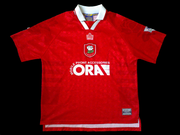
Barnsley have played their home games in red shirts for most of their history. The only exception to this is the period 1887–1901, where it is speculated that the team first wore blue shirts with purple/claret arms, then circa 1890 the team wore chocolate and white stripes, before moving on to blue and white stripes around 1898. The team first wore their now traditional red shirts in 1901.[4]
Since this time, the team has worn red shirts often with a white trim. In more recent times a black trim has sometimes been used. As with most football clubs the shirt design varies from season to season. One particular design that stands out is the 1989-90 season shirt which featured white stars on a red background and has been named as one of the worst shirts ever.[5] However, the kit is fondly remembered by some fans. Sponsors names and logos were first worn in the 1980-81 season and the club has had 12 different sponsors on the shirt in total. Since manufacturers logos were added to the shirt in the 1976-77 season, the club has 12 different kit manufacturers.
Traditionally, the team has worn white shorts (sometimes with red and/or black trim) for their home games with the only exceptions coming in the early years of the 20th century. One other notable exception came in the 2000 Division One Playoff Final against Ipswich Town, where the team wore red shorts, thus having an all-red strip.[6]
Apart from the clubs early years and the period 1921–1934 where the team wore black, the team has worn red and/or white socks for its home games. Again, the design changes from season to season.
For 2010/11 the kit will be the traditional red, with white trim. It features a shield style club badge to the left, with kit sponsors Lotto's logo on the opposite side. The main design is the Barnsley Building Society eagle logo, a return to the design from 06/07
Away strip
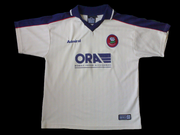
The club's away strip (used for away or cup fixtures where there is a clash of colours) differs from season to season but usually follows the design of the season's home strip with a variation on the colours. The most common colour for the away shirt has been white but many others have been used, including blue, yellow, black, ecru, dark green and even black and blue stripes. One notable away strip was the 2001-02 “Its just like watching Brazil” kit, where the team wore the colours of the 5-time World Cup winners Brazil for their away games. However, that season it was not at all like watching Brazil as the team were relegated to Division 1.
Current strip
The current strip is manufactured by Lotto and the main sponsor is Barnsley Building Society. The home shirt is the traditional red with white detail from the collar extending to each shoulder. The shorts are white with red trim at the bottom. The socks are red with a thick white trim at the top.
The away strip is of the same design, with white replacing red and purple replacing white, the same design as the 2009/10 A.C. Fiorentina kit.
Players
- As of 20 July 2010.[7]
Current squad
Note: Flags indicate national team as has been defined under FIFA eligibility rules. Players may hold more than one non-FIFA nationality.
|
|
Out On loan
Note: Flags indicate national team as has been defined under FIFA eligibility rules. Players may hold more than one non-FIFA nationality.
|
Notable Players
A list of players with international caps before, during or after their Oakwell career. Notes in brackets denote the highest international level that player reached.
 Jamil Adam (U20)
Jamil Adam (U20) Danny Alcock (C)
Danny Alcock (C)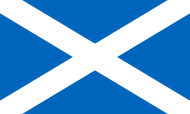 Owen Archdeacon (U-21)
Owen Archdeacon (U-21) Diego Arismendi
Diego Arismendi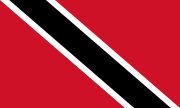 Kevin Austin
Kevin Austin
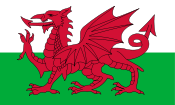 Darren Barnard (
Darren Barnard ( U18,
U18,  full caps)
full caps) Frank Barson
Frank Barson Tony Bedeau
Tony Bedeau John Beresford (B)
John Beresford (B) Paul Bernard
Paul Bernard Andranik Teymourian
Andranik Teymourian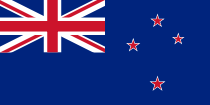 Leo Bertos
Leo Bertos Bartosz Białkowski (U21)
Bartosz Białkowski (U21) Clayton Blackmore
Clayton Blackmore Danny Blanchflower
Danny Blanchflower Daniel Bogdanović
Daniel Bogdanović Eric Brook
Eric Brook Martin Bullock (under-21)
Martin Bullock (under-21) Jacob Burns
Jacob Burns Kenny Burns
Kenny Burns Deon Burton
Deon Burton Jamal Campbell-Ryce
Jamal Campbell-Ryce Matt Carbon (U21)
Matt Carbon (U21) Stephen Carson
Stephen Carson Steve Chettle (U21)
Steve Chettle (U21) Michael Chopra (U21)
Michael Chopra (U21) Kim Christensen (U21)
Kim Christensen (U21) Jeremy Christie
Jeremy Christie Allan Clarke
Allan Clarke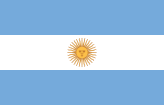 Hugo Colace (U20)
Hugo Colace (U20) Nick Colgan
Nick Colgan Barry Conlon (U21)
Barry Conlon (U21) Keith Curle
Keith Curle John Curtis (B)
John Curtis (B) Arron Davies
Arron Davies Stan Davies
Stan Davies Harry Davis
Harry Davis Jim Dobbin (U18)
Jim Dobbin (U18) Charlie Dowdall
Charlie Dowdall Dickie Downs
Dickie Downs James Dudgeon (youth)
James Dudgeon (youth) Bruce Dyer (U21)
Bruce Dyer (U21)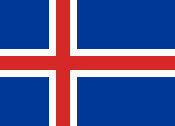 Emil Hallfreðsson
Emil Hallfreðsson Andy Evans (U21)
Andy Evans (U21) Ian Evans
Ian Evans Rory Fallon
Rory Fallon István Ferenczi
István Ferenczi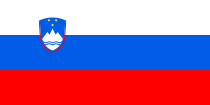 Suad Filekovič
Suad Filekovič Jan Åge Fjørtoft
Jan Åge Fjørtoft Gary Fleming
Gary Fleming Scott Flinders (U20)
Scott Flinders (U20) Paul Futcher (Under-21s)
Paul Futcher (Under-21s) Kevin Gallen (U21)
Kevin Gallen (U21) Graham Gartland (B)
Graham Gartland (B) Matthew Ghent (U-18)
Matthew Ghent (U-18) Deiniol Graham (U21)
Deiniol Graham (U21) Andy Gray
Andy Gray Phil Gray
Phil Gray Phil Gridelet (semi-professional)
Phil Gridelet (semi-professional) Adam Hammill (U19)
Adam Hammill (U19) Colin Healy
Colin Healy Ian Hendon (U21)
Ian Hendon (U21) Ernie Hine
Ernie Hine David Hirst
David Hirst George Holdcroft
George Holdcroft Brian Howard (U20)
Brian Howard (U20) Ǵorǵi Hristov
Ǵorǵi Hristov Iain Hume
Iain Hume Norman Hunter
Norman Hunter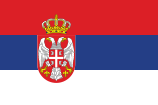 Saša Ilić
Saša Ilić Mark Jackson (U20)
Mark Jackson (U20) Simon Johnson (U20)
Simon Johnson (U20) Lee Jones
Lee Jones Ritchie Jones (U20)
Ritchie Jones (U20) Sigurður Jónsson
Sigurður Jónsson Robert Kozluk (U21)
Robert Kozluk (U21) Aleš Križan
Aleš Križan Diego León (U17)
Diego León (U17) Kyle Letheren (U21)
Kyle Letheren (U21) Andy Liddell (U21)
Andy Liddell (U21) Steve Lowndes
Steve Lowndes David Lucas (U21)
David Lucas (U21) Grant McCann
Grant McCann Mick McCarthy
Mick McCarthy
 James McEveley (
James McEveley ( U21,
U21,  full caps)
full caps) Michael McIndoe (B)
Michael McIndoe (B)
 Jon Macken (
Jon Macken ( U20,
U20,  full caps)
full caps) Stephen McPhail
Stephen McPhail Gary McSwegan
Gary McSwegan Vito Mannone (U-21)
Vito Mannone (U-21) Clint Marcelle
Clint Marcelle
 Andy Marriott (
Andy Marriott ( U21,
U21,  full caps)
full caps) Michael Mifsud
Michael Mifsud Jan Mølby
Jan Mølby Garry Monk (under-17)
Garry Monk (under-17) Alan Moore
Alan Moore Darren Moore
Darren Moore Jackie Mordue
Jackie Mordue Adie Moses (U-21)
Adie Moses (U-21)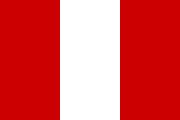 Miguel Mostto
Miguel Mostto Dave Mulligan
Dave Mulligan Daniel Nardiello
Daniel Nardiello Kyle Nix (C)
Kyle Nix (C) Lewin Nyatanga
Lewin Nyatanga Kayode Odejayi
Kayode Odejayi John Oster
John Oster Allan Pearce
Allan Pearce Jonathan Perry
Jonathan Perry Peter Price (U-23)
Peter Price (U-23) Péter Rajczi
Péter Rajczi Archibald Rawlings
Archibald Rawlings Michael Reddy (U21)
Michael Reddy (U21) Tony Rees
Tony Rees Kyel Reid (U19)
Kyel Reid (U19) Paul Reid (U19)
Paul Reid (U19) Marc Richards (under-20s)
Marc Richards (under-20s) Kevin Richardson
Kevin Richardson Rohan Ricketts (B)
Rohan Ricketts (B)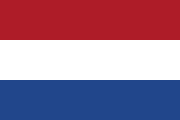 Maceo Rigters (U21)
Maceo Rigters (U21) Stuart Rimmer (youth)
Stuart Rimmer (youth) Tommy Ring
Tommy Ring Stuart Ripley
Stuart Ripley George Robledo
George Robledo Jason Rowbotham (youth)
Jason Rowbotham (youth) Mike Sheron (U21)
Mike Sheron (U21) Neil Shipperley (U21)
Neil Shipperley (U21) Ernie Simms
Ernie Simms David Speedie
David Speedie Luke Steele (U18)
Luke Steele (U18) Jackie Swindells (U18)
Jackie Swindells (U18) Gerry Taggart
Gerry Taggart Tommy Taylor
Tommy Taylor Gary Teale
Gary Teale Andranik Teymourian
Andranik Teymourian Geoff Thomas
Geoff Thomas O'Neil Thompson
O'Neil Thompson Carl Tiler (U21)
Carl Tiler (U21) Fred Tilson
Fred Tilson Eric Tinkler
Eric Tinkler Kieran Trippier (U20)
Kieran Trippier (U20) Ross Turnbull (U20)
Ross Turnbull (U20) George Utley
George Utley Colin Walker
Colin Walker George Wall
George Wall Ronnie Wallwork (U20)
Ronnie Wallwork (U20) Ian Walsh
Ian Walsh Jonathan Walters (B)
Jonathan Walters (B) Paul Warhurst (U21)
Paul Warhurst (U21) Tom Waring
Tom Waring Tony Warner
Tony Warner David Watson (U21)
David Watson (U21) Phil Watson
Phil Watson Paul Wilkinson (U21)
Paul Wilkinson (U21) Tom Williams
Tom Williams Danny Wilson
Danny Wilson Ray Wood
Ray Wood Nicky Wroe (C)
Nicky Wroe (C)
A list of players who made more than 100 appearances for Barnsley.
 Eric Winstanley (410)
Eric Winstanley (410) Joe Joyce (388)
Joe Joyce (388) Brough Fletcher (311)
Brough Fletcher (311) Nicky Eaden (293)
Nicky Eaden (293) Neil Redfearn (292)
Neil Redfearn (292) Clive Baker (291)
Clive Baker (291) Dickie Downs (284)
Dickie Downs (284) Mick McCarthy (272)
Mick McCarthy (272) Andy Payton (266)
Andy Payton (266) Ian Banks (260)
Ian Banks (260) Jimmy Baxter (248)
Jimmy Baxter (248) Gerry Taggart (247)
Gerry Taggart (247) Brendan O'Connell (240)
Brendan O'Connell (240) Gary Fleming (239)
Gary Fleming (239) Owen Archdeacon (233)
Owen Archdeacon (233) Paul Futcher (230)
Paul Futcher (230) Billy Houghton (206)
Billy Houghton (206) Ernie Hine (205)
Ernie Hine (205) Leslie Lea (205)
Leslie Lea (205)
 Darren Barnard (201)
Darren Barnard (201) Bert Hodgkinson (200)
Bert Hodgkinson (200) John Bettany (198)
John Bettany (198) Andy Liddell (198)
Andy Liddell (198) Steve Agnew (194)
Steve Agnew (194) Bobby Hassell (192)
Bobby Hassell (192) Don Lees (188)
Don Lees (188) Martin Bullock (185)
Martin Bullock (185) Chris Morgan (185)
Chris Morgan (185) Andy Rammell (185)
Andy Rammell (185) Bruce Dyer (181)
Bruce Dyer (181) David Watson (178)
David Watson (178) Pat Howard (177)
Pat Howard (177) Antony Kay (174)
Antony Kay (174) Jack Cooper (172)
Jack Cooper (172) George Utley (170)
George Utley (170) Wilfred Bartrop (160)
Wilfred Bartrop (160) David Currie (157)
David Currie (157) Martin Devaney (152)
Martin Devaney (152) Mike Sheron (152)
Mike Sheron (152) Adie Moses (151)
Adie Moses (151) Darren Sheridan (149)
Darren Sheridan (149) George Spruce (149)
George Spruce (149) Neil Austin (148)
Neil Austin (148) Tommy Lumley (146)
Tommy Lumley (146) Beaumont Asquith (145)
Beaumont Asquith (145) James Hay (145)
James Hay (145) John Saunders (145)
John Saunders (145) Matty Appleby (139)
Matty Appleby (139) Arjan de Zeeuw (138)
Arjan de Zeeuw (138) Alan Hill (133)
Alan Hill (133) Charlie Bishop (130)
Charlie Bishop (130) John Collins (130)
John Collins (130) Graham Pugh (130)
Graham Pugh (130) Jim Dobbin (129)
Jim Dobbin (129) Malcolm Graham (129)
Malcolm Graham (129) Tom Forman (126)
Tom Forman (126) Frank Sharp (125)
Frank Sharp (125) Stephen Foster (123)
Stephen Foster (123) Brian Howard (121)
Brian Howard (121) Alex Neil (121)
Alex Neil (121) Lee Simon Butler (120)
Lee Simon Butler (120) Mick Butler (120)
Mick Butler (120) Stuart Gray (120)
Stuart Gray (120) Daniel Nardiello (119)
Daniel Nardiello (119) John McCann (118)
John McCann (118) Steve Lowndes (116)
Steve Lowndes (116) Kevin Miller (115)
Kevin Miller (115) Paul Reid (115)
Paul Reid (115) Nicky Law (114)
Nicky Law (114) Chris Barker (113)
Chris Barker (113) Roy Ironside (113)
Roy Ironside (113) Billy Ronson (113)
Billy Ronson (113) Paddy Greenwood (111)
Paddy Greenwood (111) Jack Short (109)
Jack Short (109) Bob Parker (108)
Bob Parker (108) Steve Davis (107)
Steve Davis (107) Tony Leighton (107)
Tony Leighton (107) Derrick Parker (107)
Derrick Parker (107) Trevor Aylott (105)
Trevor Aylott (105)
 Jon Macken (105)
Jon Macken (105) George Robledo (105)
George Robledo (105) Emlyn Williams (105)
Emlyn Williams (105) Mark Smith (104)
Mark Smith (104) John Bethune (103)
John Bethune (103) Ian Evans (102)
Ian Evans (102) John Logan (102)
John Logan (102) Nick Colgan (101)
Nick Colgan (101) James Moore (101)
James Moore (101) Chris Shuker (100)
Chris Shuker (100)
Managers
|
|
|
Club records
- Record League Victory: 9-0 v Loughborough Town, Second Division, 28 January 1899
- Record Cup Victory: 6-0 v Blackpool, FA Cup First Round, 20 January 1910
- Record League Defeat: 0-9 v Notts County, Second Division, 19 January 1927
- Record Cup Defeat: 1-8 v Derby County, FA Cup First Round, 30 January 1987
- Highest League Scorer in Season:
- Most League Goals in Total Aggregate: Ernie Hine, 123, 1921–38
- Most Internationals Caps: Gerry Taggart, 35, Northern Ireland
- Most League Appearances: Barry Murphy, 514, 1962–78
- Record Transfer Fee Received: £4,500,000 from Blackburn Rovers for Ashley Ward, December 1998
- Record Transfer Fee Paid: £1,500,000 to Partizan Belgrade for Gorgi Hristov (1997) and £1,500,000 to QPR for Mike Sheron (1999)
- Record Attendance: 40,255 v Stoke City, FA Cup 5th Round, 15 February 1936
- Youngest ever Football League player: Reuben Noble-Lazarus 15 years and 45 days[8]
References
- ↑ "Barnsley Football Ground Guide". The Internet Football Ground Guide. http://dspace.dial.pipex.com/town/park/yfh45/barnsley.htm. Retrieved 110 September 2007.
- ↑ "Second Tier Historical Stats". Football365.com. http://stats.football365.com/hist/tier2/attable.html. Retrieved 31 December 2009.
- ↑ Play-off joy at last for Burley's Ipswich BBC Sport, 29 June 2000
- ↑ "Barnsley - Historical Football Kits". Historical Kits. http://www.historicalkits.co.uk/Barnsley/Barnsley.htm. Retrieved 4 September 2007.
- ↑ "Room 101- The Worst Football Kits Ever". Historical Kits. http://www.historicalkits.co.uk/Articles/Room_101.htm. Retrieved 4 September 2007.
- ↑ "Stewart pays tribute to keeper Wright". BBC. 29 May 2000. http://news.bbc.co.uk/1/hi/sport/football/768826.stm. Retrieved 4 September 2007.
- ↑ "Profiles". Barnsley F.C.. http://www.barnsleyfc.premiumtv.co.uk/page/ProfilesDetail/0,,10309,00.html. Retrieved 23 October 2007.
- ↑ "Barnsley schoolboy makes history". BBC Sport. 2008-10-01. http://news.bbc.co.uk/sport2/hi/football/eng_div_1/7645562.stm. Retrieved 2010-09-03.
External links
- Official Barnsley site
- Barnsley Chronicle's Oakwell page
- Barnsley FC Supporters Trust
- BBC South Yorkshire's Barnsley FC Page
- Football365 Barnsley Statistics
|
||||||||
|
|||||
|
|||||||||||||||||||||||
|
|||||||||||||||||||||||